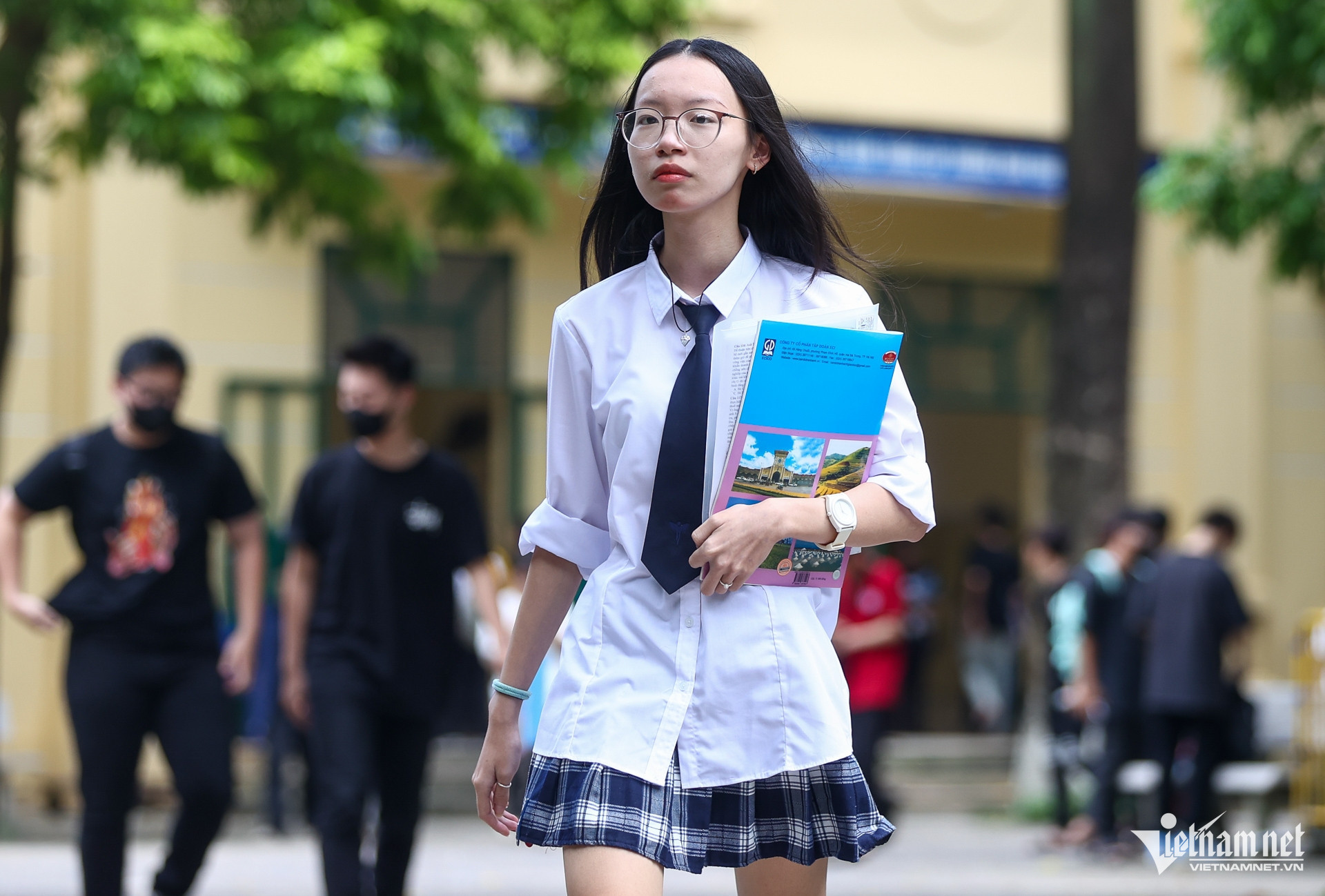
MOET has released a dispatch guiding education and training tasks in the 2024-2025 academic year, with emphasis on the way to test and assess students’ capability in literature.
The ministry has asked secondary and high schools to not use texts and excerpts from textbooks when designing periodic tests and exam questions to assess students’ reading comprehension and writing skills. Practice work and projects can be used to assess students’ abilities.
Schools have also been asked to pay attention to creating test banks of questions, and to prepare 9th graders for the entrance exam to high schools and 12th graders for high school finals.
MOET pointed out that problems exist in exam questions. Some schools have recently been reported as using unreasonable materials with ‘sensitive factors’ for questions.
Nguyen Phuoc Bao Khoi, a lecturer of literature at the HCM City University of Education, said the request to not use texts and excerpts in textbooks to design exam questions just repeats MOET’s Dispatch 3175 dated July 21, 2022 on the sources of linguistic data used to test and assess students.
Students must be required to make use of their knowledge and reading/writing/speaking/listening skills in unfamiliar contexts and situations. It is necessary to avoid re-using texts in textbooks when creating test questions in reading comprehension and writing. Under this method, students have to show their critical thinking and creativity.
Khoi said the latest request by MOET is consistent with the ministry's 2018 literature program which focuses on developing student abilities.
However, Khoi said, in order to successfully implement the request, it is necessary to develop criteria for choosing materials for exam questions.
Some criteria can be found in the 2018 literature program, but he said more detail is needed to standardize the work.
Ho Tan Nguyen Minh, a teacher of literature at Luong Van Chanh High School for the Gifted in Phu Yen, applauds MOET’s decision. The new theme assignment fits the current education program, under which "there is one curriculum, but many textbooks". The use of materials that do not exist in textbooks will ensure fairness for all students, no matter which textbooks they use during studying.
Minh said the new method of raising questions will help promote students’ abilities, because students don’t have to learn texts by heart, but need to be creative when solving exam questions.
However, in order to familiarize students with the new method, teachers need to change their teaching method. Instead of simply transferring knowledge to students, teachers need to help students develop their abilities. Once students have these skills, they will be able to solve exam questions of all kinds.
The new method will also encourage both teachers and students to read more books and seek more materials. If students think that all exam questions will be designed on the materials in textbooks, they will only refer to these materials and will not seek information from other sources as well.
Under the new regulation, teachers have more freedom to create exam questions. However, some experts warned that this may lead to "excessive freedom" and to questions that could be either too easy or too difficult.
“When choosing materials for exam questions, teachers need to choose those suitable to students’ capability, not from materials teachers like. The materials need to be clear and suitable to the students’ age,” Minh said.
Le Huyen